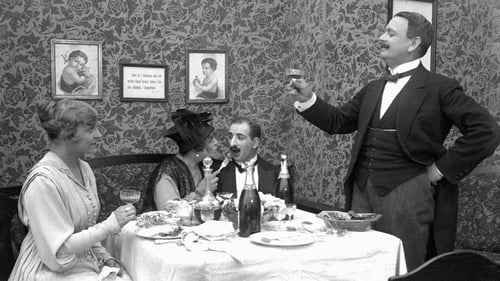Hauk Aabel
Nascimento : 1869-04-21, Førde, Norway
Morte : 1961-12-12

Jensen Sr.
The Whalers (original title: Valfangare) is a filmed record of the final whaling expedition in the Arctic before the outbreak of WW2. Only partly a documentary, the film is able to accommodate a dramatic throughline, concerning the redemption of wastrelly millionaire's son Allan Blom (Allan Bohlin). Pressed into service on the expedition, Allan shows he's a true son of Scandanavia through his courageous actions on the high seas, and even wins the hand of heroine Sonja (Tutta Rolf) in the bargain. While the whaling scenes are both exciting and exhillarating, the sequence in which a whale carcass is stripped and gutted may not appeal to everyone in the audience. Originally filmed in 1939 in Swedish and Norwegian, The Whalers was helpfully fitted out with English subtitles for its 1942 American run.

Krestoffer
The classic movie from 1938 is an adaptation of Oscar Braatens play. Eva Sletto plays the young factory worker Milja, and Harald Heide Steen as her unfaithful boyfriend Julius.Milja and Julius are a happy couple working at the factory, and everything is good until Petrina shows up at the arena. Julius is bewitched by the girl, who gets him to drink and steal.Milja is soon left alone with the shame - and a bastard child. The child is placed with Hønse-Lovisa while Milja is at the factory, but a doctor casts his eyes on Milja`s young. He's looking for children to adopt to rich westside people. In her desperation, Milja gives away the dearest thing she owns, for the kid to have better conditions than she manages to give him.It is Hønse-Lovisa that convinces her that the material benefits can never compensate for real love and care.

Professoren
Du har lovet mig en kone! (English: You have promised me a wife!) is a 1935 Norwegian comedy film written by Tancred Ibsen, and co-directed by Ibsen and Einar Sissener, starring Sissener, Randi Brænne and Kirsten Heiberg.

Jeppe
The drunk Jeppe has a life changing moment when he thinks he is in heaven when he wakes up in a rich man's bed.

Ola Nordistua
Øjvind, a smallholder's boy, is a close friend with Marit, a farmer's girl, throughout their entire childhood. As an adolescent he one day recognizes that she has become a maiden, and that he has fallen in love with her. When he sees Marit dancing with Jon Halten, a farmer's son, he gets sad, and notices that when you start loving someone, you are not cheerful any more. He senses the social distance between himself and Marit, and tries to compensate this by becoming the best pupil in the village. Øjvind wants to study at an agricultural college, and the old schoolmaster helps him to arrange this. When he some years later returns to the village as an agronomist, he and Marit resume their romance. Because of their different social status Marit's grandfather, Ola Nordistua, tries to stop the liaison. With new agricultural methods Øjvind helps his father to get better harvests. At the same time the old Ola Nordistua sees his farm going downhill as no one really cares for it.

Evensen, kirketjener
Den store barnedåpen (English: The great christening) is a 1931 Norwegian comedy film directed by Tancred Ibsen, starring Einar Sissener, Aase Bye and Agnete Schibsted-Hansson. It was the first feature-length Norwegian sound film. The lacklustre Harald (Sissener) is taken in by Alvilde (Bye), and charged with looking after her bastard child. It soon dawns on both of them that Harald has more potential than previously assumed.

Piper, direktør
This the story of a wizard elk - Rauten, as people called him. He was a human being in animal guise. The story begins in Ré Valley, which lies like a yawning gap between mountains, long and flat with borders of forests so dark that they look as though part of the blackness of night lingered in them. A river moves sluggishly along the bottom of the valley, making its way slowly and carefully between stretches of light-red sand. It runs northwards, a rare thing in Norway.

Alexander Nyberg
In a small provincial town there is a hotel run by one of those eccentric cooks of long ago who made generous meals that have nothing in common with the extravagant restaurateurs of nowadays and their meagre menus. The manager is named after Alexander the Great and in his restaurant the town bourgeoisie meet and discuss various issues, especially matters of the heart. Morals are part of the conversations and prove to be complicated issues even for strict and serious Nordics. 28 minutes of runtime are missing and presumed lost.







